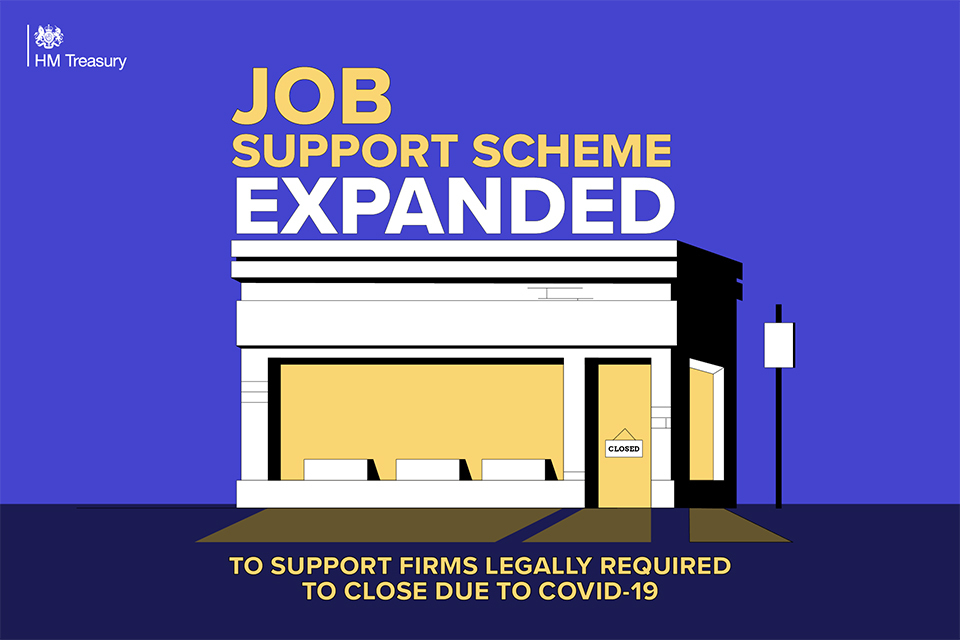
* THE JOB SUPPORT SCHEME HAS BEEN UPDATED FOR OPEN BUSINESSES *
Click here for details.
Following the introduction of a new 3-tiered local alert system on 14th October 2020, it’s been confirmed that the new Job Support Scheme (JSS) will be extended to include support for businesses that are forced to close their doors and employees that are affected.
Whilst the recently announced Job Support Scheme [click for details] promises to top up employee wages, where a guaranteed 33% of hours can be worked, this latest extension goes a step further and means that government will pay two thirds of each employees salary (or 67%) up to a maximum of £2100 per month.
Tier 3 (aka “Very High”) Guidance says:
Pubs and bars must close, and can only remain open where they operate as if they were a restaurant – which means serving substantial meals, like a main lunchtime or evening meal. They may only serve alcohol as part of such a meal.
Please visit the latest guidance to confirm any changes and for any local variations, which may vary from the main government guidance, as we understand some areas may be eligible for additional funds. At the time of writing this article, the above guidance was correct.
The scheme may also apply in circumstances where premises are forced to close, such as that in Wales or Northern Ireland where national circuit breakers have been announced. Clarification is anticipated on this point as they sit within devolved administrations.
The Key Points of the New Extended Job Support Scheme
- Employers will not need to (but may if they wish to) contribute towards wages. However, they must cover costs such as Employers National Insurance and Minimum Pension Contributions.
- Businesses are only eligible to claim for the new grant whilst they are subject to restrictions and employees must be off work for a minimum of 7 consecutive days
- Cash grants for businesses required to close in local lockdowns has also increased to up to £3,000 per month.
To be eligible employees must be employed and an RTI submission notifying payment in respect of that employee to HMRC must have been made on or before 23 September.
It’s expected that the scheme will be operated similarly to that of the first Coronavirus Job Retention Scheme, where calculations were made based on an average of the prior year or same period in the last financial year where employee wages vary.
Further details are anticipated to be released as questions are raised throughout the industry.
Last Updated on 4 years by Hannah Ingram





